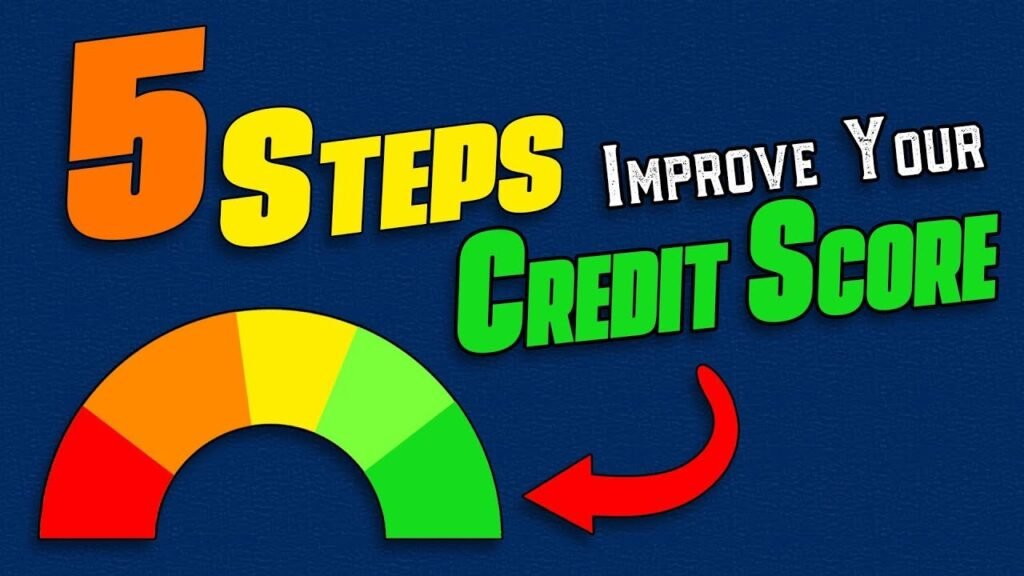Actionable Steps to Boost Your Credit Score Today
Conquer Credit: Actionable Steps to Boost Your Credit Score Today
Your credit score is a three-digit number that holds immense power in your financial life. It impacts everything from loan approvals and interest rates to insurance premiums and even job opportunities. A good credit score unlocks a world of financial benefits, while a poor score can create significant roadblocks.
The good news is, you have the power to improve your credit score and unlock a brighter financial future. This blog dives deep into actionable steps you can take today to boost your credit score.
Understanding the Credit Score Game
Before we delve into strategies, let’s understand the core factors that influence your credit score:
- Payment History (35%): This is the single most important factor. It reflects your track record of making timely payments on credit cards, loans, and other debts. Late payments significantly damage your score.
- Credit Utilization Ratio (30%): This refers to the amount of credit you’re using compared to your total credit limit. Keeping your credit utilization ratio low (ideally below 30%) demonstrates responsible credit management.
- Credit Mix (10%): Having a healthy mix of credit accounts, such as revolving credit (credit cards) and installment loans (mortgages, car loans), can positively impact your score.
- Length of Credit History (15%): The longer your credit history, the better. This shows lenders you’re a reliable borrower with a proven track record.
- New Credit Inquiries (10%): Applying for too many loans or credit cards in a short period can negatively affect your score. However, responsible inquiries for things like mortgages or car loans are less impactful.
Taking Action: Strategies to Boost Your Credit Score
- Obtain Your Credit Reports and Dispute Errors:
Your first step is to get a copy of your credit reports from the three major credit bureaus: Experian, TransUnion, and Equifax. You can access them for free at Annual Credit Report. Review your reports meticulously for any errors, such as incorrect account information, late payments that shouldn’t be there, or even accounts you don’t recognize.
If you find errors, dispute them directly with the credit bureau and the creditor who reported the information. The Fair Credit Reporting Act (FCRA) gives you the right to have these errors corrected.
- Make On-Time Payments, Every Time:
This is the golden rule of credit score improvement. Late payments can have a devastating impact on your score. Set up automatic payments for your minimum balance to avoid accidental misses. Consider using budgeting apps or calendar reminders to stay on top of due dates.
- Strategize Your Credit Utilization Ratio:
Aim to keep your credit utilization ratio below 30%. This demonstrates to lenders that you’re not overextending yourself financially. Here are some strategies:
- Pay down your credit card balances strategically. Focus on paying off cards with the highest interest rates first.
- Consider requesting credit limit increases on your existing cards. This can improve your utilization ratio even if you don’t spend more. However, only request increases if you’re confident you can manage the additional credit responsibly.
- Maintain a Healthy Mix of Credit:
Having a mix of credit accounts, including revolving credit (credit cards) and installment loans (mortgages, car loans), can positively impact your score. If you only have credit cards, consider applying for a secured loan to build a history of responsible installment loan repayment.
- Don’t Close Old Accounts (Unless Necessary):
Closing old credit card accounts can shorten your credit history, which can negatively impact your score. However, if you have a card with a high annual fee or one you’re tempted to overspend on, closing it might be wise. Just weigh the pros and cons before doing so.
- Be Mindful of New Credit Inquiries:
Applying for too many loans or credit cards in a short period can lower your score. Space out your credit applications and only apply for credit when necessary.
- Become an Authorized User (Strategically):
Being added as an authorized user on someone else’s credit card with a good payment history can benefit your score. However, only do this with someone you trust who manages their credit responsibly. Their late payments will also negatively impact your score.
- Consider Credit Repair Services (Carefully):
If you have a lot of errors on your credit report or are struggling to manage your credit on your own, consider seeking help from a credit repair service. However, be cautious. Legitimate services focus on disputing errors, not magic

Advanced Strategies for Credit Champions:
- Go Beyond Minimum Payments: While paying the minimum keeps you out of delinquency, consider paying more than the minimum amount to reduce your credit card balances faster. This can significantly improve your credit utilization ratio and free up available credit.
- Negotiate Debt Settlements: If you’re struggling with overwhelming debt, consider negotiating settlements with creditors. This can involve paying a lump sum to settle a larger debt. However, settlements can negatively impact your credit score and should be a last resort.
- Enroll in Credit Counseling: Non-profit credit counseling agencies can provide valuable guidance and support for managing debt and improving your credit score. They can help you create a budget, negotiate with creditors, and develop a plan to reach your financial goals.
- Beware of Quick Fixes: There are no magic bullets or overnight solutions to improve your credit score. Building and maintaining a good credit score takes time and consistent effort. Be wary of companies promising quick fixes or credit score guarantees.
Addressing Common Credit Score Concerns:
- How Long Does it Take to Improve My Credit Score?
The timeframe for credit score improvement varies depending on the severity of your credit situation. Addressing errors on your credit report can have a relatively quick impact (within 30-60 days if resolved), while paying down debt and building a positive payment history takes longer (usually 6-12 months or more for significant improvement).
- What if I Have No Credit History?
Building credit from scratch takes time and responsibility. Consider getting a secured credit card, which requires a security deposit that becomes your credit limit. Use the card responsibly and pay your balance on time to establish a positive credit history.
- What if I Have Negative Items on My Credit Report?
Negative items like delinquencies, repossessions, or bankruptcies can stay on your credit report for up to 7-10 years. However, their impact diminishes over time, especially if you maintain a good payment history on your existing accounts. Focus on making on-time payments and building positive credit habits to offset the negative impact.
Maintaining a Credit-Healthy Lifestyle:
- Monitor Your Credit Regularly: Accessing your credit reports and monitoring your score regularly allows you to identify potential errors early and track your progress over time. You can obtain free credit reports from each of the three major bureaus annually at Annual Credit Report. Additionally, many banks and credit card companies offer free credit score monitoring as a service.
- Practice Smart Credit Habits: Developing good financial habits is key to maintaining a healthy credit score. Create a budget, track your spending, and avoid impulse purchases. Only use credit when necessary and pay your balances in full whenever possible.
Advanced Strategies for Credit Champions:
- Go Beyond Minimum Payments: While paying the minimum keeps you out of delinquency, consider paying more than the minimum amount to reduce your credit card balances faster. This can significantly improve your credit utilization ratio and free up available credit.
- Negotiate Debt Settlements: If you’re struggling with overwhelming debt, consider negotiating settlements with creditors. This can involve paying a lump sum to settle a larger debt. However, settlements can negatively impact your credit score and should be a last resort.
- Enroll in Credit Counseling: Non-profit credit counseling agencies can provide valuable guidance and support for managing debt and improving your credit score. They can help you create a budget, negotiate with creditors, and develop a plan to reach your financial goals.
- Beware of Quick Fixes: There are no magic bullets or overnight solutions to improve your credit score. Building and maintaining a good credit score takes time and consistent effort. Be wary of companies promising quick fixes or credit score guarantees.

Addressing Common Credit Score Concerns:
- How Long Does it Take to Improve My Credit Score?
The timeframe for credit score improvement varies depending on the severity of your credit situation. Addressing errors on your credit report can have a relatively quick impact (within 30-60 days if resolved), while paying down debt and building a positive payment history takes longer (usually 6-12 months or more for significant improvement).
- What if I Have No Credit History?
Building credit from scratch takes time and responsibility. Consider getting a secured credit card, which requires a security deposit that becomes your credit limit. Use the card responsibly and pay your balance on time to establish a positive credit history.
- What if I Have Negative Items on My Credit Report?
Negative items like delinquencies, repossessions, or bankruptcies can stay on your credit report for up to 7-10 years. However, their impact diminishes over time, especially if you maintain a good payment history on your existing accounts. Focus on making on-time payments and building positive credit habits to offset the negative impact.
Maintaining a Credit-Healthy Lifestyle:
- Monitor Your Credit Regularly: Accessing your credit reports and monitoring your score regularly allows you to identify potential errors early and track your progress over time. You can obtain free credit reports from each of the three major bureaus annually at Annual Credit Report. Additionally, many banks and credit card companies offer free credit score monitoring as a service.